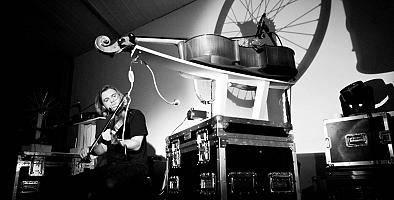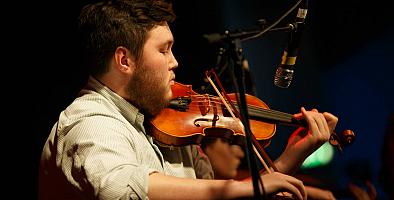Course information
Department
Length
1 year full-time or 2 years part-time
Scholarship information
Course overview
The MMus Sonic Arts offers you a unique opportunity to work at the forefront of a wide range of creative and experimental approaches to technology-based sound and music practice, including spatial sound, field recording, live electronics, interactive performance, improvisation systems, sound art installation and audiovisual composition.
- You have full access to the pioneering Electronic Music Studios, founded in 1968, they offer advanced facilities for sonic art composition, surround sound formats, editing and mixing, location sound, live/interactive performance, and a collection of unique vintage synthesisers such as the VCS4, the only one in existence.
- Critical creative practice: you’ll develop a rigorous conceptual framework for your creative practice and engage critically with contemporary ideas and debates in sound art and sound studies. You’ll also explore historical models of practice and have access to important collections and artefacts.
- You’ll be able to choose from a range of optional modules that encompass experimental approaches to sound, music and technology.
- Collaborative and interdisciplinary projects with other departments and/or external organisations and individuals are facilitated and encouraged.
- You’ll be taught be practising artists and scholars, working at the cutting edge of their fields internationally across live electronics, performance, sound art and acoustic ecology.
- You’ll benefit from being part of a vibrant community in the Department of Music, with our internationally respected community of sonic artists including many PhD doctoral researchers. You’ll be encouraged to attend our lively events programme including our international research seminar series and various related research units. You’ll also be supported in performing your work in our concert series as well as other occasional opportunities.
- You’ll prepare yourself for a career in a variety of related areas as the programme has nurtured generations of students, helping develop innovative and celebrated careers in sound art installation, electronic music performance, audio for AR and VR, dance, film sound design and composition, radio and podcasting, soundscapes, and computer music research and beyond.
Contact the department
If you have specific questions about the degree, contact Professor John Drever.





